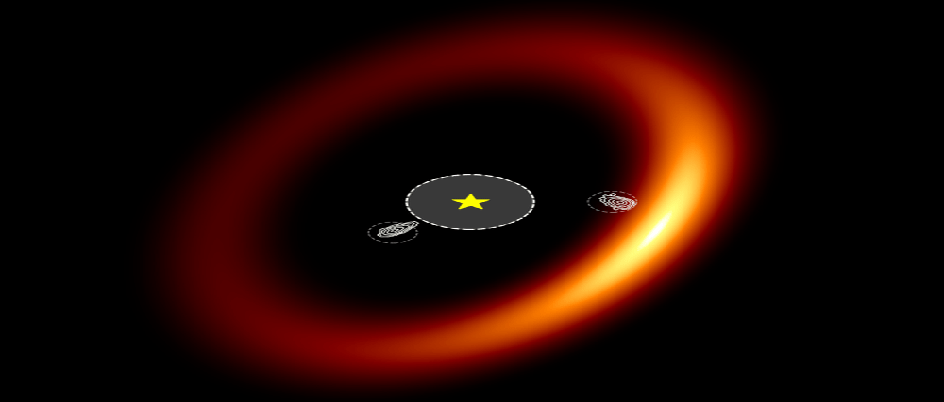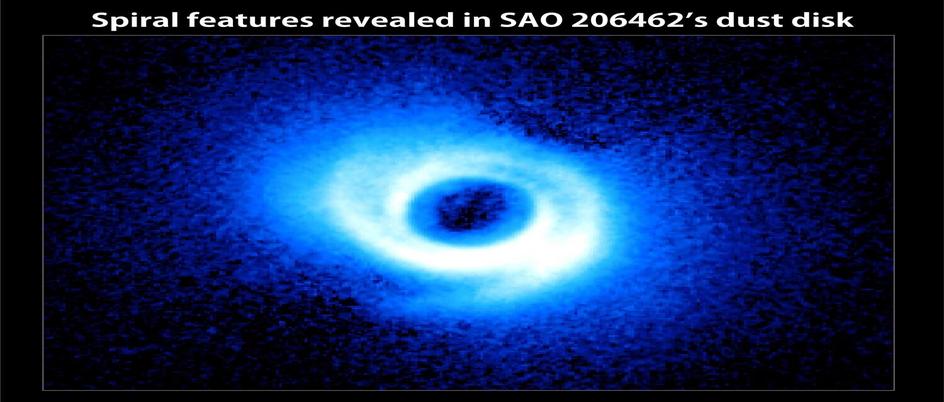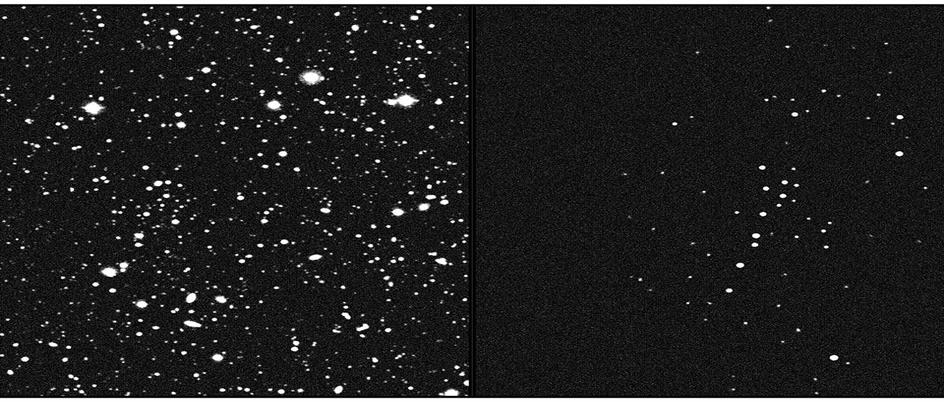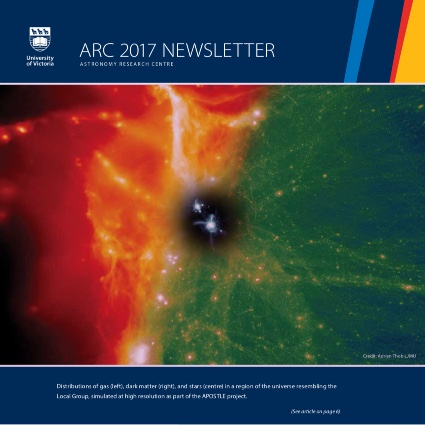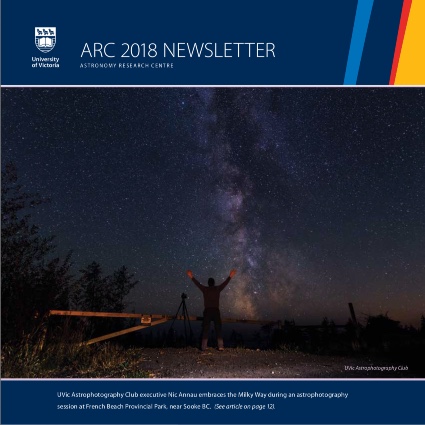The ARC
The Astronomy Research Centre (ARC) at the University of Victoria brings together world-renowned researchers in astrophysics, engineering, computation, and instrumentation working in or near Victoria, BC.
UVic scientists and engineers work closely with colleagues at the nearby NRC Herzberg Institute in Saanich, the NRC DRAO in Penticton, and at TRIUMF in Vancouver, to form one of the largest concentrations of astronomy-related talent in Canada.
Our mission is to communicate the exciting astronomical research being done at/with UVic, to facilitate new collaborations and synergy, to support high quality undergraduate, graduate and post-doctoral training, and to foster public engagement in science.
ARC Director's Corner
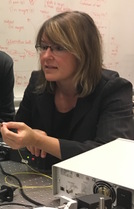
Welcome to the UVic Astronomy Research Centre! We were established in 2015 as a communication platform to increase awareness and opportunities in astronomical research at UVic. Our members from UVic’s faculties of Science and Engineering work with researchers at the nearby NRC’s Herzberg Astronomy & Astrophysics Research Centre in Saanich, BC, the NRC’s Dominion Radio Astronomy Observatory in Penticton, BC, the TRIUMF lab in Vancouver, BC, and with industrial partners across Canada.
Members of the ARC include students, postdocs, staff, faculty, adjuncts, and associates involved in a wide range of astronomical research, including ground and space-based instrumentation. All of our work requires research support, through local and national computer servers, rapid access to cloud computing, and high-performance computing for intensive simulations. These are top priorities for the ARC, both to serve our members, and to share the research outcomes from this cluster of excellence across Canada and with the broader community.
ARC hosts or supports local astronomy-related workshops, and helps to coordinate major funding requests and other research initiatives. Currently, ARC hosts an NSERC-CREATE training program on New Technologies for Canadian Observatories (NTCO), it is involved in the CFI-funded GIRMOS instrument being built at NRC-Herzberg for the Gemini-South Observatory, and is part of the large CFI-proposal to contribute to the ANDES high resolution spectrograph at the European Extremely Large Telescope. Members of ARC have been involved in building and commissioning of the new GHOST spectrograph at the Gemini-South Observatory (summer 2022). In addition, several members of ARC are involved in observing programs with the newly launched JWST, as well as the scientific and technical teams designing the Canadian-led CASTOR UV space mission.
Finally, ARC supports UVic activities, such as the observatory open houses and group tours, and student-led initiatives, such the astrophotography group. ARC works to be inclusive of Indigenous ways of knowing, and to be respecful of diverse perspectives in astronomy. This is a pillar in the UVic Strategic Plan, and we hope to provide a more welcoming space for all those who are curious about the sky.
We encourage you to browse these webpages, and explore the exciting research outcomes, research opportunities, and other activities supported by the ARC.
Prof. Kim Venn
ARC Director
September 2022
Program Management Team
The Program Management Team helps to identify and prioritize the goals of the ARC, and oversees the strategic planning to reach those goals. This team is comprised of members from all significant partners in the ARC.
ARC Program Management Team members:
Newsletters
Land Acknowledgment
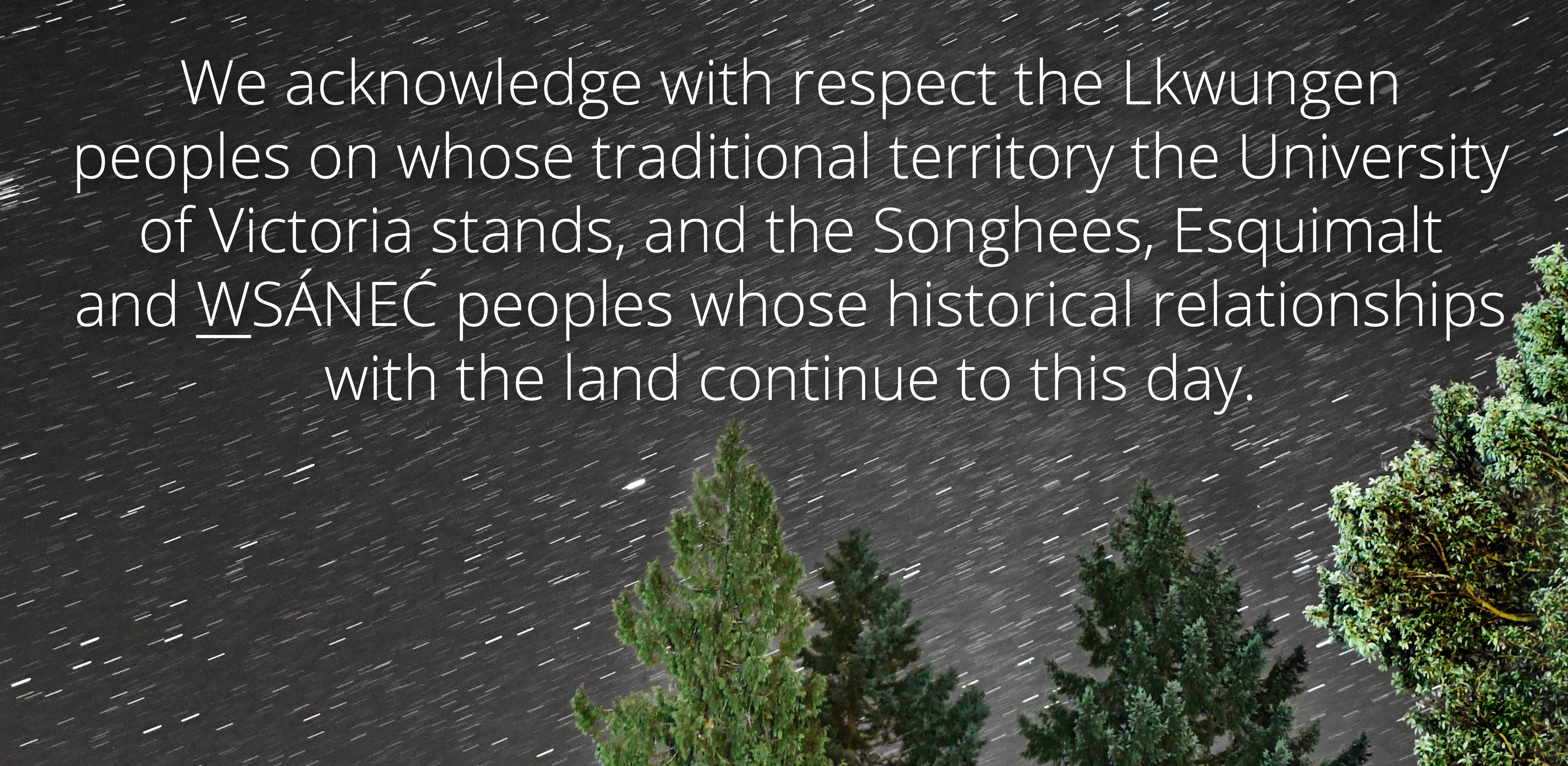
We encourage you to explore and learn from UVic's Office of Indigenous Academic & Community Engagement pages and ARC's Indigenous Acumen page.



